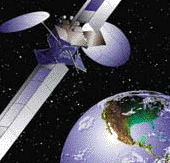|
|
|
Title of the Paper: Harmonic Estimation in Power Systems Using Adaptive Perceptrons Based on a Genetic Algorithm
DOWNLOAD FULL PDF
Authors: S.Ghodratollah Seifossadat, Morteza Razzaz,
Mahmood Moghaddasian, Mehdi Monadi
Abstract: With the widespread use of power electronics equipment and nonlinear loads since the last twenty years, current and voltage waveforms of distribution systems are becoming highly distorted. This paper presents an adaline artificial neural network, and its new algorithm based on a genetic method for tracking the harmonic components of current and voltage waveforms in power systems. Adaptive tracking of harmonic components can easily be done using this algorithm. The proposed algorithm is fast due to its simple construction, which make it suitable for on-line applications. This knowledge would make it possible to compensate the harmonic components. The simulated results are presented and validated by experimental results to depict the effectiveness of the proposed method.
Keywords: Adaline Neural Networks, Genetic Algorithms, Harmonics Estimation, Power System
Title of the Paper: Hybrid Differential Evolution and Particle Swarm Optimization Based Solutions to Short Term Hydro Thermal Scheduling
DOWNLOAD FULL PDF
Authors: T Jayabarathi, Sandeep Chalasani,
Zameer Ahmed Shaik, Nishchal Deep Kodali
Abstract: In this paper, a hybrid differential evolution and a particle swarm optimization based algorithms are proposed for solving the problem of scheduling the hydro thermal generation for a short term. The efficient scheduling requires minimizing the operating cost of the thermal plants. A wide range of constraints both hydraulic and thermal like power balance constraint, thermal plant limits, hydro plant limits, reservoir volumes and discharge constraints are fully taken into consideration. The hydraulic continuity restrictions are also considered. The proposed HDE and PSO algorithms are implemented for a test system. .The program for these two algorithms has been developed in Matlab 6.5 platform. To validate the efficiency of the algorithms the test results are compared with those obtained by other conventional and non-conventional methods. It is shown that the proposed techniques yield optimal solutions when compared to other non-conventional methods. Keywords:
particle swarm optimization, Hybrid differential evolution, Hydro-Thermal scheduling,
|
|
|


